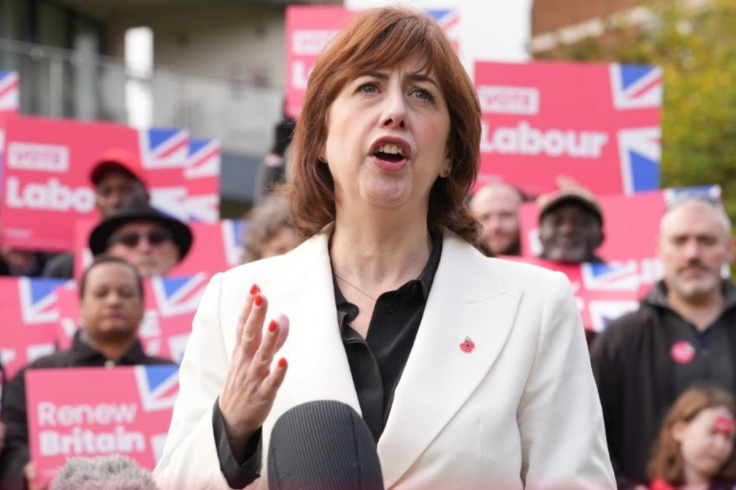Lucy Powell, Sacked by Starmer Weeks Ago, Now Elected as Labour's Deputy Leader
New deputy leader urges Labour to reconnect with grassroots and broaden internal debate.

Lucy Powell has been elected deputy leader of the Labour Party, defeating Education Secretary Bridget Phillipson in a contest that exposed growing dissatisfaction within the party's base. The Manchester Central MP secured 54% of the vote—87,407 ballots to Phillipson's 73,536—on a turnout of just 16.6%, a figure some insiders say reflects widespread disillusionment among members.
The result was announced shortly after Labour's poor performance in the Caerphilly byelection, where the party fell to third place behind Plaid Cymru and Reform UK, polling just 11% in a seat it had held since the Welsh Senedd's creation in 1999.
A Mandate for Member-Led Reform
Powell framed her victory as a mandate for change—not just in policy, but in how the party engages with its members. 'I've been given a clear mandate that members want their voice to be heard at the top of the party.' She criticized the leadership's tendency to rely on a 'narrow group of voices' and called for broader inclusion of elected representatives and grassroots activists.
'They connect us to the national conversation,' Powell said. 'Instead of just telling people what we want them to do, we need to respect, value and include them more.'
She pledged to work with Keir Starmer and across party leadership to 're-engage with the party' and make members feel part of the conversation again.
Twenty Warnings and a Cultural Challenge
In her victory speech, Powell delivered what was described as '20 warnings' to Prime Minister Keir Starmer. While promising to be a loyal deputy, she offered a sharp critique of the government's performance and urged a shift in tone, strategy, and culture.
Among her most pointed remarks:
- 'We won't win by trying to out-Reform Reform, but by building a broad progressive consensus.'
- 'Debating, listening and hearing is not dissent. It's all strength.'
- 'Unity and loyalty comes from collective purpose, not from command and control.'
- 'People feel that this government is not being bold enough in delivering the kind of change we promised.'
Powell's comments reflect a broader concern that Labour's leadership has drifted too far from its base, particularly on issues like the two-child benefit cap and immigration rhetoric.
Mobilizing for Local Elections
With local elections approaching in May 2026, Powell has pledged to get to work immediately. 'I'm not writing off any elections next year,' she said. 'These are important elections in Wales, in Scotland, in London, and right around the country.'
She emphasized the need to sharpen Labour's messaging and reclaim the political agenda. 'We've ceded too much in recent months,' Powell said, urging the party to better communicate its achievements—from workers' rights and pay rises to expanded school meal programs and hospital appointments.
A New Chapter for Labour Leadership
Powell's election marks a shift in Labour's internal dynamics. Her emphasis on grassroots engagement, policy clarity, and cultural reform within the party could reshape how Labour presents itself to voters—and how it governs from within.
While Starmer congratulated Powell and reaffirmed his commitment to progressive politics, her victory speech made clear that she intends to be more than a ceremonial deputy. 'As your deputy, my commitment is to change the culture,' she said. Whether that change leads to deeper unity or further friction remains to be seen—but Powell's message is unmistakable: the members must be heard.
© Copyright IBTimes 2025. All rights reserved.





















